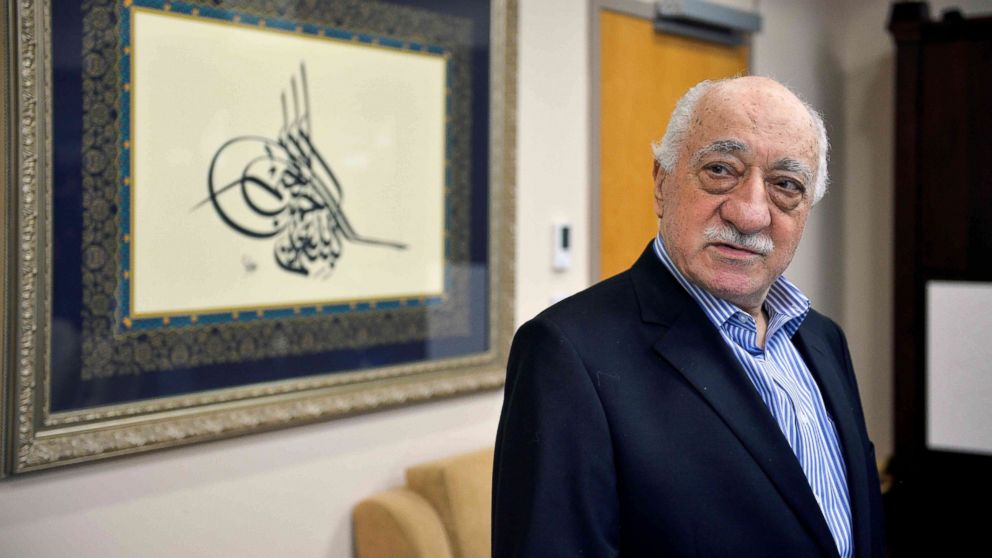Turkey Formally Requests Extradition of Cleric Gulen From US
— -- The Turkish Justice Ministry sent its first formal request for the United States to extradite Pennsylvania-based cleric Fethullah Gulen today, according to a Turkish news agency.
Previously, Turkish officials had issued public verbal demands for Gulen's extradition, but this represents the first time that formal paperwork was delivered to send the cleric to Turkey to face charges that he initiated the failed coup attempt that took place in that country in July.
Vice President Joe Biden, while visiting the country in August, attempted to reassure Turkish leaders, saying that the U.S. took the case "very seriously." He promised that more lawyers had been devoted to the case than any he had ever seen.
"We are cooperating with Turkish authorities," Biden told reporters regarding the extradition request. "We have no, no, no interest whatsoever in protecting anyone who has done harm to an ally, none. But we need to meet the legal standard requirement under our law."
Gulen has led a mostly reclusive life in the U.S., where he's based at the Golden Generation Worship and Retreat Center, a compound located in the Poconos region of Pennsylvania.
Gulen blamed Turkish President Recep Tayyip Erdogan for the failed coup in Turkey and suggested that it could have been “staged” by the government.
He is known for promoting a more liberal version of Islam that embraces science and tolerance for other faiths. His approach to the religion has rewarded him with a legion of followers as well as enemies in Turkey.
Turkey and the U.S. have a complex alliance, united in part by shared military goals.
Earlier this month, Erdogan said that President Barack Obama floated the idea of joint action against ISIS when they met at the G20 summit in China, according to the BBC. He said Turkey would have "no problem" with cooperating with such a plan.
Gönül Tol, director of Middle East Institute's Center for Turkish Studies, told ABC News that she believed Turkey to be "trying to use its military presence there to advance its agenda and leverage over Washington."
"Turkey still wants a no-fly zone in northern Syria and [are] laying the groundwork right now," Tol added.




